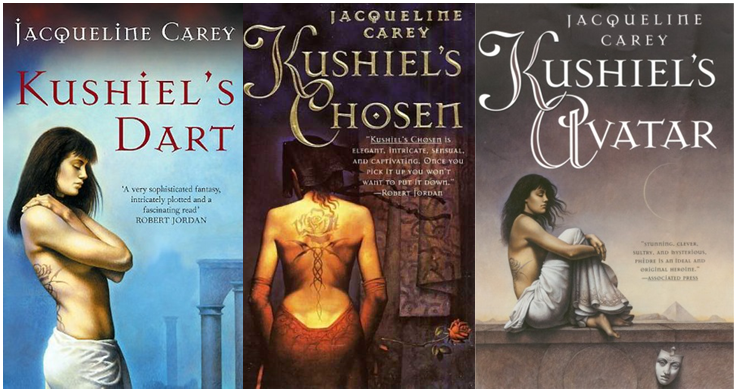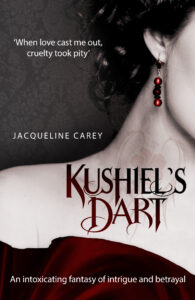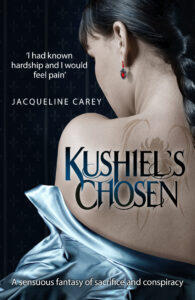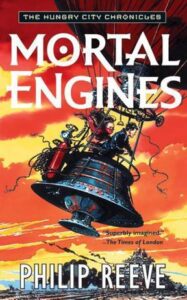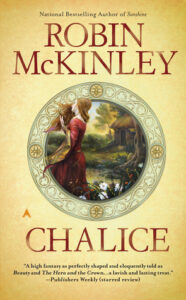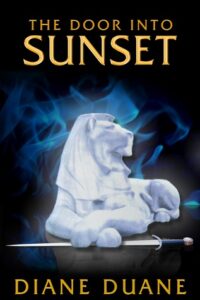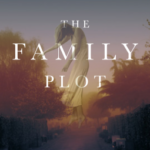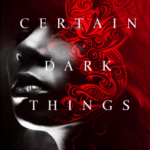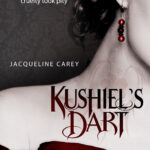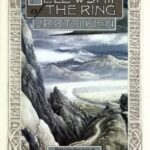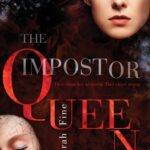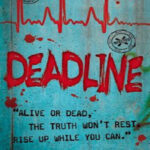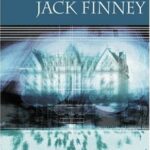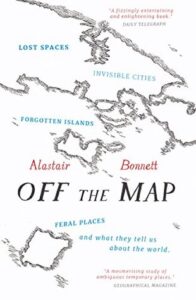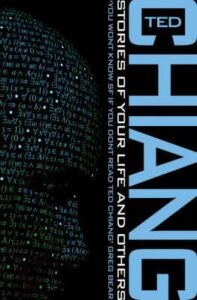Well, Cait @ Paper Fury did it, so how can I resist?
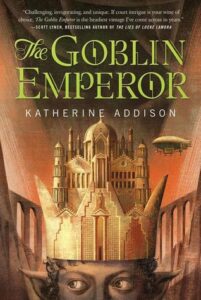 1. A book that totally should’ve… gotten a sequel.
1. A book that totally should’ve… gotten a sequel.
Are you kidding? You know the answer, right? The Goblin Emperor, of course. I mean, I know there’s another book in the same world due, but I want more of Maia and Csevet and Cala and…
2. A book that totally should’ve… had a spin-off series.
Impulsively, I’m going to go with The Lord of the Rings, because you know the epic adventures of Eowyn and Faramir would’ve been amazing. Or just Eowyn.
Or, I know! Marie Brennan’s A Natural History of Dragons series — spinoff with Tom Wilker’s adventures in polite society, being confronted with Lady Trent’s eccentricities. And losing his temper, because how is he meant to control that woman?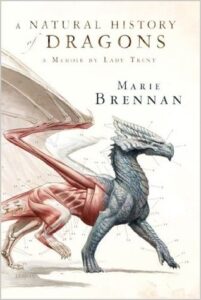
3. An author who should totally… write more books.
Katherine Addison? Is that predictable? Oh dear. Most authors I love have written plenty, but I always want more. And I’d say Tolkien, but I don’t want Christopher Tolkien to get more ideas about dragging out old unfinished manuscripts, and nor do I want some kind of zombie situation.
4. A character who totally should’ve… ended up with someone else.
I have this reaction in a lot of Guy Gavriel Kay’s books, so I can’t help but frustratedly yelp about Kim and Aileron in The Fionavar Tapestry books.
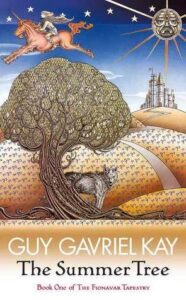 5. A book that totally should’ve… ended differently.
5. A book that totally should’ve… ended differently.
The first one that jumps to mind is The Fionavar Tapestry again, because I don’t understand why Paul stayed in Fionavar with Jaelle, with whom I never felt he had a genuine connection. Also, anything Arthurian where Gawain dies at the end. And though I acknowledge the beauty of the plot and the sense it makes, the end of Ursula Le Guin’s The Furthest Shore (and, uh, consequently large aspects of the following books) can definitely go away. I prefer Ged with his mage powers, sorry.
6. A book that totally should’ve… had a movie franchise.
The Hobbit. Isn’t it a shame that after they did such a great job with The Lord of the Rings, adapting it so faithfully (but adjusting for the demands of the screen), that they never did the same with such a children’s classic? It would be hard to make the tone match the book and the LotR films, but hey, J.R.R. did it, so it must be 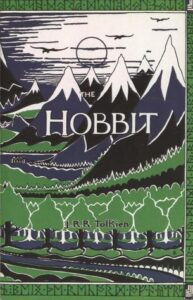 possible.
possible.
Ssh, I can’t hear you. Who is Martin Freeman?
7. A book that totally should’ve… had just one point of view.
More or less anything with multiple first person segments, I’m afraid. I’m not a fan of switching between character perspectives like that, most of the time. It’d be easier for me to think of books that didn’t mess that up. Like Guy Gavriel Kay’s Tigana — okay, that’s third person limited, but it gives such differing and powerful views on the same conflict. That’s multiple POVs done right.
8. A book that totally should’ve… had a cover change.
Ummm. I’m not a visual person, so for this I actually have to go look at my shelves… Nope, nothing’s jumping out at me. Is there something which should be leaping to mind?
9. A book that totally should’ve… kept the same cover.
Kushiel’s Dart and sequels. I mean, just look. One has gorgeous art that fits the world and looks sensual. The other looks like a vampire novel. And if that is Phèdre on the cover of Kushiel’s Chosen, where is her marque?
vs.
10. A series that totally should’ve… stopped at book one.
Uh. Tongue in cheek, I declare Seanan McGuire’s October Daye books — because then I wouldn’t have so much to catch up on.
Well, I’m not tagging anyone in particular, but what about you guys? Any books that totally should’ve [x] that leap to mind?
